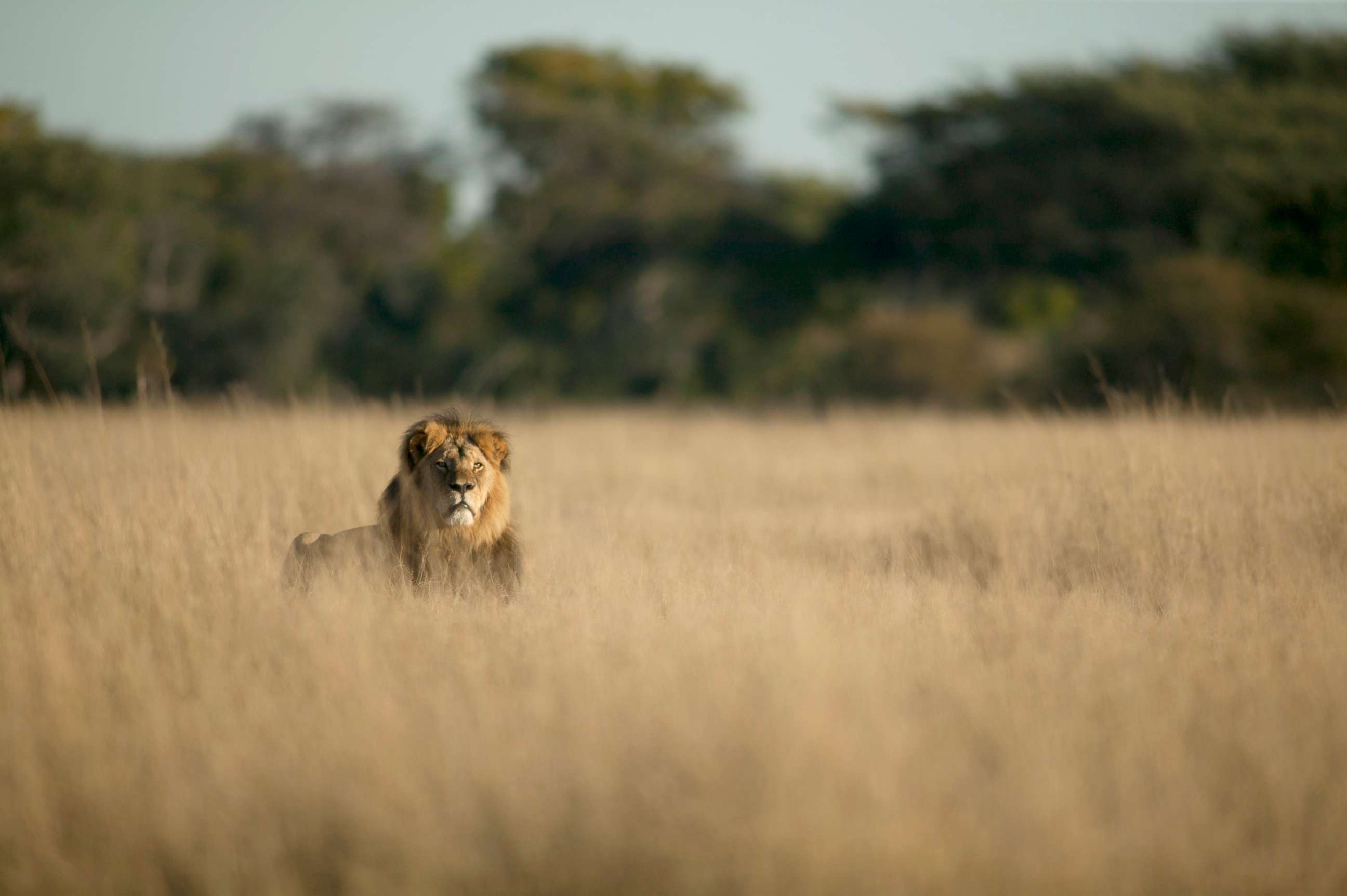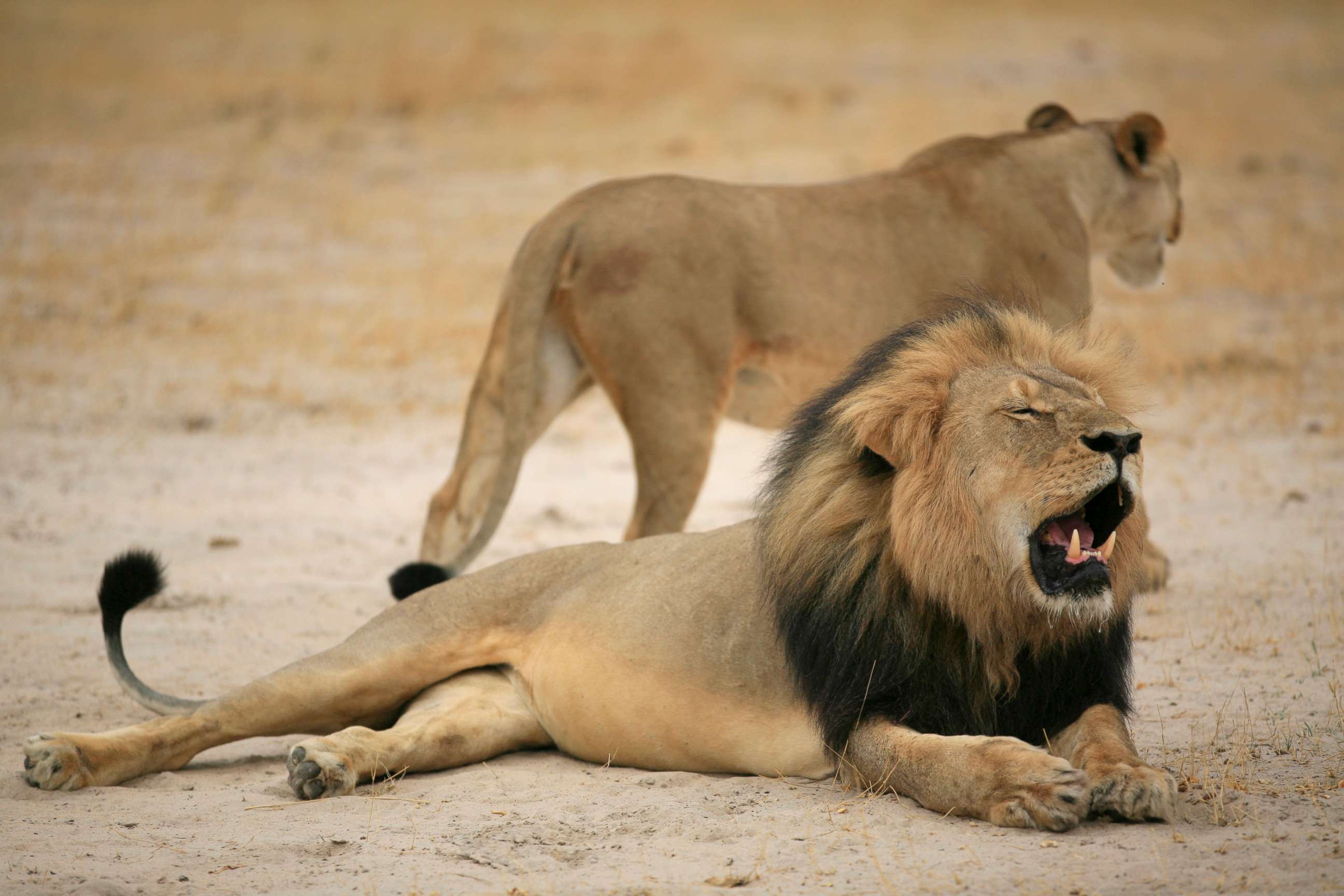Trump admin. began accepting permits to import lion trophies last month
— -- U.S. wildlife officials began issuing permits for lion trophies hunted in Zambia and Zimbabwe about a month ago, ABC News confirmed today.
U.S. Fish and Wildlife Service officials said the decision was made after concluding that regulated hunting would help the survival of the endangered species in the wild.
The African lion population has decreased 42 percent in the past 20 years, according to the African Wildlife Foundation. The officials did not provide any additional details about what new information led to the decision to issue permits to import lion trophies from those countries. The Fish and Wildfire Service said it takes at least 45 days to get a permit approved so it’s unclear if any have been granted since they began accepting applications.

In 2016, the Fish and Wildlife Service placed African lions on the endangered species list for the first time due to the "dramatic decline of lion populations in the wild." The designation says that imports of African lions will "generally be prohibited" but still allows the government to issue permits to import the species "such as when it can be found that the import will enhance the survival of the species." There is an estimated 17,000 - 19,000 African lions remaining in the wild.
In addition to Zambia and Zimbabwe, the government allows permits for wild lions and lions from managed areas in South Africa and is reviewing policies about importing lion trophies from Mozambique, Namibia, and Tanzania.
A U.S. Fish and Wildlife spokesperson said they found that "legal, well-regulated sport hunting" can benefit conservation by providing incentives to local communities and generating revenue that can be directed to conservation programs, saying that the programs in Zambia and Zimbabwe will enhance the survival of the species in the wild. They began issuing permits to import lion trophies on Oct. 20.

The administration also announced this week that it would allow permits to import trophies from elephants killed in Zimbabwe and Zambia between Jan. 1, 2016 to Dec. 31, 2018.
Conservation and animal advocates dispute that the money brought in by hunting tourists and fees really helps conservation, saying that more money is brought in by people who want to see animals alive in the wild.
"African elephants and African lions drive billions of dollars of economic activity in Africa. But they drive that activity only when they are alive," Wayne Pacelle, president of the Humane Society of the United States wrote in a blog post tonight. "Killing them deducts from their populations, diminishes wildlife-watching experiences for others, and robs the countries of Africa of its greatest resources."
In addition to Zambia and Zimbabwe the U.S. Fish and Wildlife Service allows permits to import trophies from hunted wild lions and lions from managed areas in South Africa and is reviewing policies about importing lion trophies from Mozambique, Namibia, and Tanzania.




